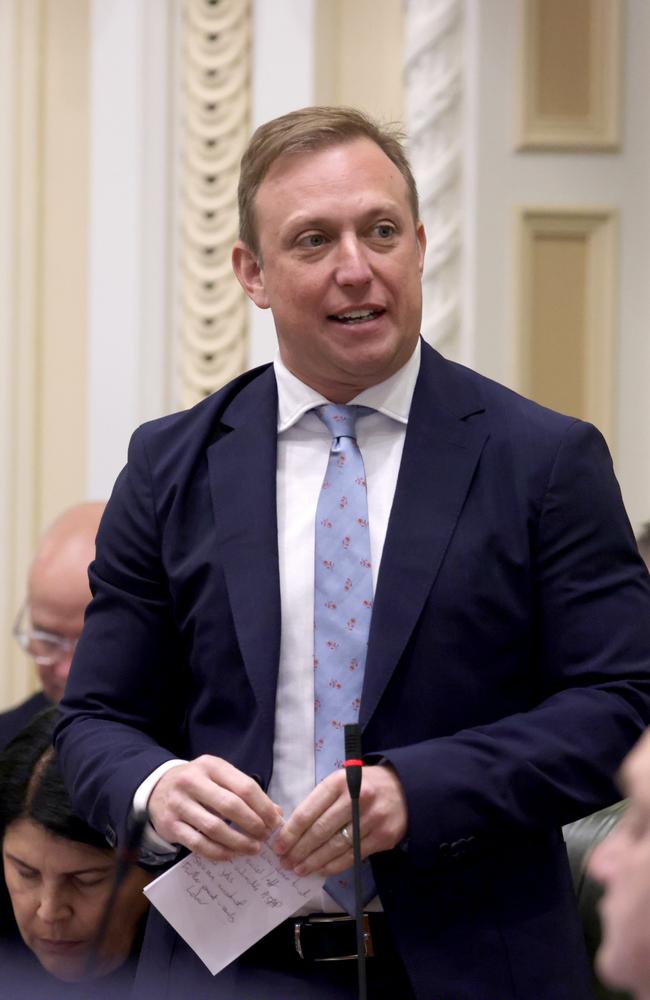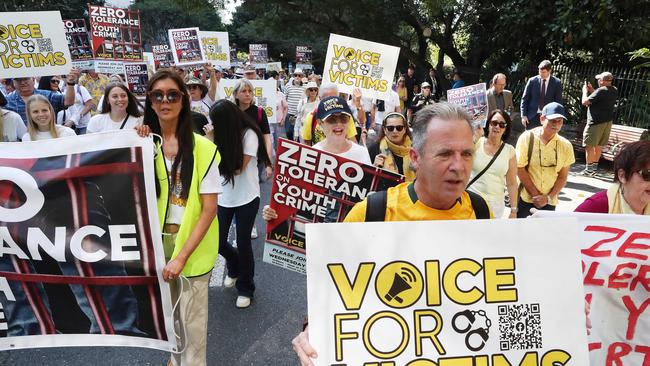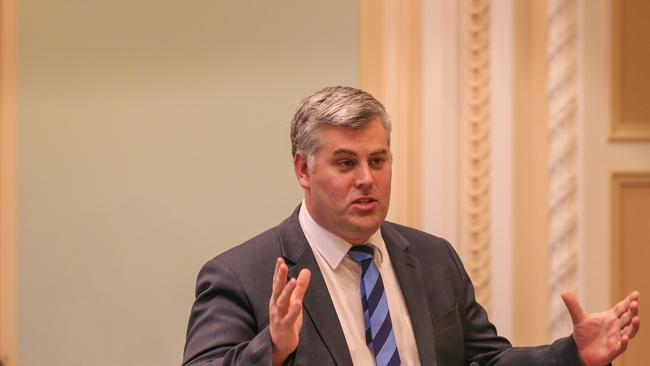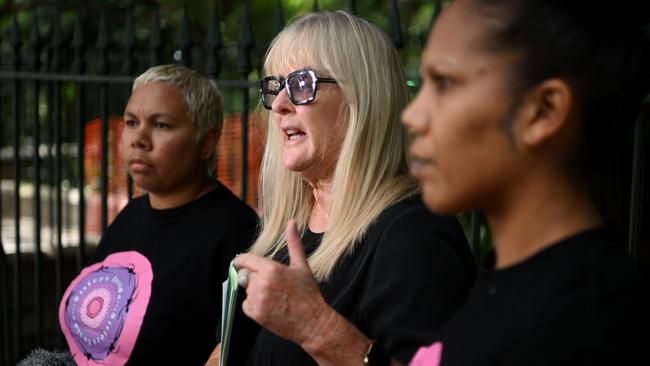Deputy Premier Steven Miles defends surprise youth justice amendments amid backlash
Deputy Premier Steven Miles has revealed there was push back from his Left faction ahead of rushing controversial youth justice laws through to override human rights.
QLD Politics
Don't miss out on the headlines from QLD Politics. Followed categories will be added to My News.
Deputy Premier Steven Miles has revealed there was push back from his Left faction this week ahead of rushing controversial youth justice laws through parliament to override human rights.
The leader of the Left insisted “none of us took this decision lightly” to pass laws to hold young offenders indefinitely in watch-houses and to declare those places youth detention centres following intense criticism from civil society figures.
Mr Miles told reporters on Friday morning that “all of us” interrogated the proposed legislation and asked “is there not an alternative”.
But he insisted the government responded to advice from Crown Law, the Solicitor-General, Director-General for the Department of Youth Justice, and the Police Commissioner.
“We had to act as urgently and as fast as we could to address this precedent set by the recent court decision,” Mr Miles said.
“Otherwise, our police would have their hands tied and they could no longer hold serious, violent offenders when they believed they are a risk to the community.”

The Deputy Premier also shut down claims the government’s widely criticised process to bypass consultation was akin to notorious steps taken by the Newman government to rush through bikie laws.
But he conceded he would accept feedback from KAP leader Robbie Katter who blasted the government for an “egregious breach of parliamentary process”.
“There are ways it could have been done better, we’ll take that on board,” Mr Miles said.
“Certainly it wasn’t the intention to not fully inform the crossbench or indeed the Opposition of what we were doing and why we were doing it.
“The pace at which it had to be done to avoid that possible legal procedure, where existing young people and indeed young people arrested until those laws were in place, would not be able to be held.
“The focus had to be on the haste we needed to make those changes and so I suppose we focused possibly too much on the Parliamentary process to get that done, to avoid that scenario and if we could have done a better job of engaging with the crossbench and Opposition I’m happy to take that on board.”
Earlier on Friday, Queensland’s deputy premier defended the government’s surprise passing of youth justice laws, saying they needed to be passed quickly.

“We were advised by the Solicitor General, that if we didn’t make these changes immediately, the young people in watching houses would need to be released to the community,” Steven Miles told the ABC on Friday morning.
“And they’re in watch houses because the police believe they’re a danger to the community. So that’s the difficult choice we’re facing as a government.”
The amendments have been met with widespread criticism from child advocates, the opposition, the Katter Australia Party and the Greens.
Mr Miles said Opposition politicians had the “luxury of criticising” the changes while the government actually had to make the difficult decision or have up to 40 alleged youth offenders released into the community.
“Nobody wants to be in this situation … we were advised that if we didn’t act immediately, there was a chance that all of the existing situations where police were keeping young people in watch houses would no longer be legal,” he said.
“We weren’t really left with much choice, that’s one of the challenges of being in government.”

The deputy premier said the changes were made to allow police to continue the practice of holding young offenders in watch houses, having been used for over 30 years illegally.
“A committee process would normally take … six plus weeks (where) the police wouldn’t be able to hold young offenders who they believe are a risk to the community,” he said.
“Nobody wanted to do something like this but faced with the alternative, it was really the only choice we had and that was done on the basis of legal advice from Crown law and the Solicitor General.”
Mr Miles said it was difficult for people to comprehend that prison was a better environment than their home life for “most” of the young offenders.
“It’s difficult for those of us who live in pretty privileged environments, it’s difficult to comprehend the life environment of most of these young people,” he said.
“We are acting to expand capacity, we’ve increased capacity by 30 per cent already, we have plans to build new facilities in, Woodford in the southeast and in Cairns in the far north, they are therapeutic facilities.”

In July, human rights lawyer and CEO of Sisters inside Debbie Kilroy said chronic understaffing issues at existing youth detention centres would extend to the new facilities leading to more children in solitary confinement.
“The government is building two more (detention centres),” she said.
“They can’t staff the three that they have now, I’m not sure how they are going to staff another two.
“Children are being kept in solitary confinement for days, weeks, months, years.
“The department will argue that they did get out for an hour or so, well they did get out to get medication.
“All the children will be locked down in the prison.”


